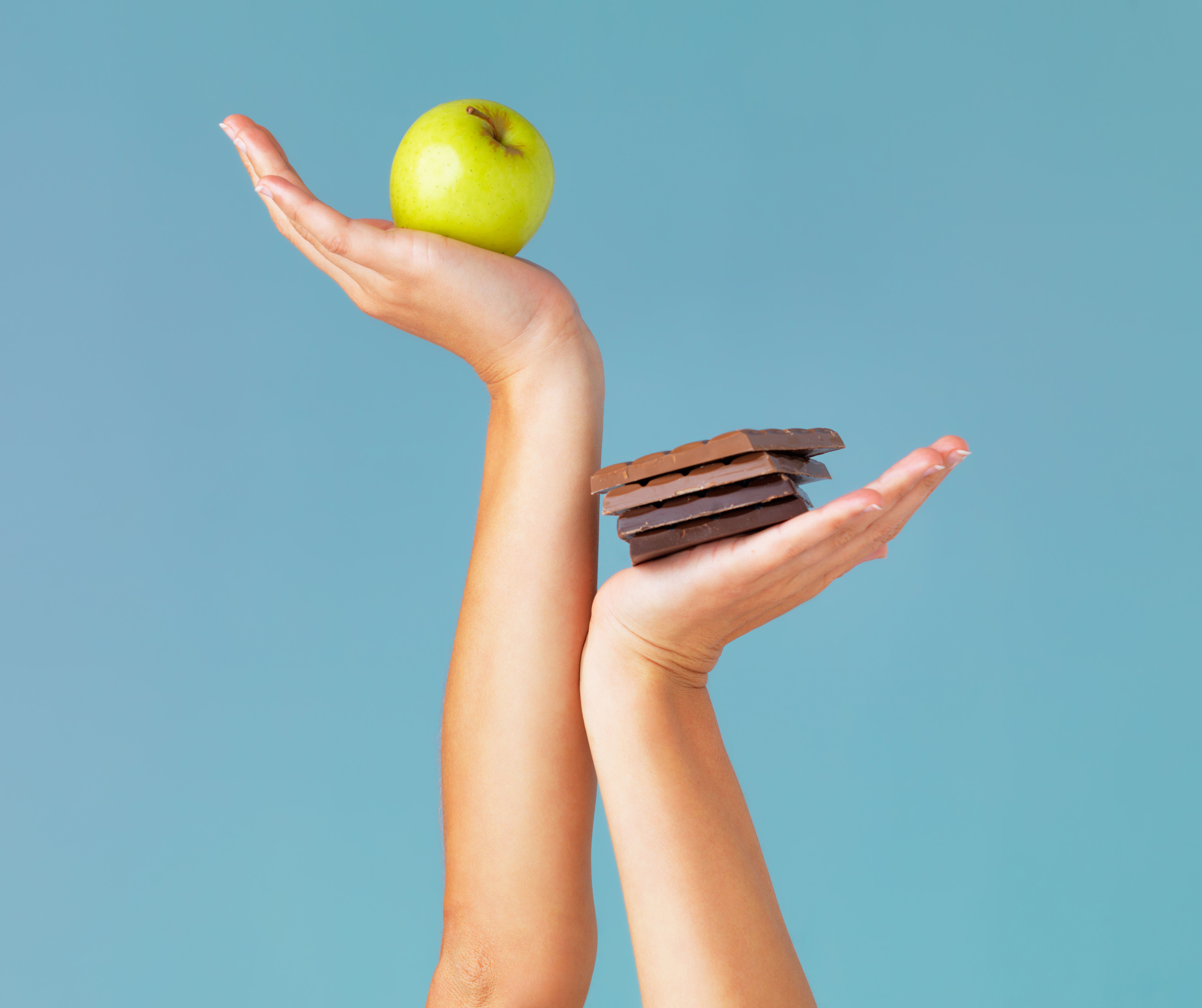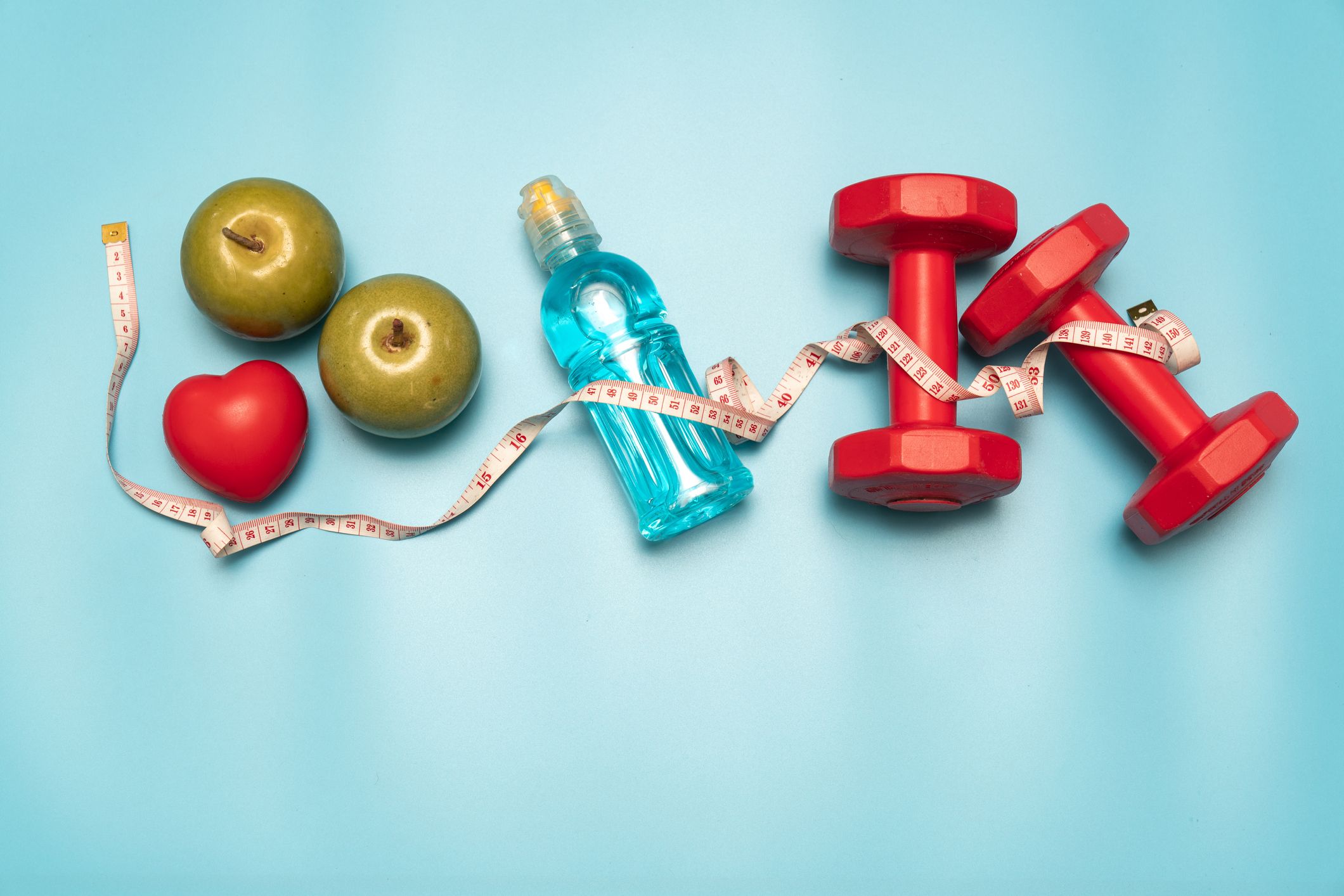Real talk: Losing weight takes time. And guess what? That’s completely normal. The process of shedding even just a pound can depend on a grocery list of variables including your basal metabolic rate, starting weight, sleep schedule and more. So when someone asks, “how much weight can I lose in a week?” there isn’t really a hard-and-fast answer. That being said, experts have some useful info to help you understand what’s realistic for you and your body.
First off, what you can lose and what you should lose are two different things. “If you want to lose weight and keep it off, you want to do it in the one to two pounds per week range,” says Lauren Slayton, MS, RD. That’s ultimately going to be more sustainable—and easier to stay on track with—than going to extreme measures to drop three pounds in one week, only to see them come right back on.
But, as mentioned, there are many variables that can play into your ability to lose weight quickly, so that number may be different depending on those. Let’s break it down it a bit.
There are seven main factors that play into weight loss.
1. Water weight
With weight loss come catfishes. “If you lose weight too quickly, it’s probably not coming from fat,” notes Alexandra Sowa, MD, MA. It’s likely just water weight. She likes to remind her patients, “water can be shed be shed very quickly but comes back on just as fast.”
So if you’re trying to lose weight, remember that just because the number on the scale is going up or down quickly doesn’t mean you’re achieving the results that you’re aiming for. “Slower can be often be better and a sign that your body is actually dropping fat rather than other crucial elements like muscle or water,” Sowa says.
2. Calorie deficit
If you’re serious about dropping some considerable weight, you’re going to want to focus on a calorie deficit. Dina Kader, RD, CDN recommends having your doctor perform a bioimpedance analysis (BIA) to figure out what your deficit should be. This test will take into account things like your muscle mass and the amount of calories you burn at rest (otherwise known as your basal metabolic rate). Then it will calculate how many calories you’d need to consume in a day to lose one to two pounds a week. That number, plus how much you will lose during a workout, minus 500 will determine your general deficit.
“Typically you want to eat 500 calories less than what you typically burn in a day to lose around one to two pounds a week,” Khader says. So let’s say you burn 1,300 calories at rest and 350 calories during your workout, that’s 1,650 calories total. So you’d shoot for an eating plan around 1,150 to 1,250 calories a day to lose one to two pounds in a week, Khader says. (Generally, you don’t want to go below 1,200 calories a day without supervision from a doctor or nutritionist.)
3. Muscle mass
If you’re shedding pounds too quickly, similar to water, you may be shedding muscle instead of fat. That’s why it’s so important to strength train while trying to lose weight.
Weights will help you to put on more muscle mass and burn more calories, Khader says. How? Because muscle burns calories but body fat does not. People think ‘I don’t want to put on muscle because I don’t want to get bulky, but that’s not true. “Lifting weights helps you to burn more fat more efficiently,” Khader says.
4. Sleep
Night owls beware. Your sleeping habits could be getting in the way of your goals. “Seven hours of sleep is crucial for weight loss,” Sowa says. Often times she finds that many of her patients who struggle losing weight are actually suffering fromundiagnosed sleep apnea. This sleep disorder in particular involves your body not getting the proper oxygenation it needs at night, leading to terrible sleep quality and tiredness. “And when you’re tired your body craves carbs for energy,” Sowa says, likely derailing your weight-loss plan.

5. Stress
“In times of life stressors it can be hard to lose weight, Sowa says. “Your body knows it’s in a stressed out position. It’s not going to let you lose weight like you would if it was an intentional restriction.” Try to eliminate the stress in your life when on a new weight loss plan. It’s okay to prioritize yourself.
6. Thyroid issues
Ladies, if you suffer from thyroid problems and are try to lose weight, let me be the first to say that those things don’t always go hand-in-hand. “When your thyroid is sluggish it slows everything down,” Khader says. This includes the rate at which you burn calories and your metabolism, both are factors that could impede your ability to make the numbers on the scale go down. So you might want to hit up your doc if you’ve been consistent with diet and exercise, but still aren’t getting the results you want. It could be your thyroid.
7. Nutrition
This may be an obvious one, but that doesn’t make it any less important. Your diet before, during and after your weight loss are incredibly crucial in how easily or quickly you’ll be able to lose or keep off weight off. The National Academy of Medicine recommends the average adult gets a minimum of 0.8 grams of protein for every kilogram of body weight per day, or a little over 7 grams for every 20 pounds of body weight.
If you want to build muscle and lose fat at the same time, you’re going to want to increase your protein intake. “If you’re not getting enough protein while doing heavy weight training, you will not recover from your workouts enough to perform well, which means that you will not put on as much muscle or burn as much fat,” Phil Catadul, certified personal trainer and nutrition expert, previously told Women’s Health. The trainer suggests that around 30+ percent of your calories should come from protein.
There are a few tips can help you maximize your weight loss in a week.
- Don’t eat late at night: Food metabolizes slower as it gets later, Khader says. You don’t have to go full-on 16:8 method, but eating between a certain time frame can be extremely beneficial for weight loss.
- Eat more protein: The experts can’t emphasize this enough. Khader recommends plant based proteins (think: pea or sprouted rice proteins) because they don’t stress the kidneys. But if you’re a meat and fish kind of person, she suggests lean meats like chicken and turkey. Other great protein sources include wild fish, salmon, and beans. And if you want to do red meat like beef, do so occasionally to reduce your fat intake.
- Grab some weights: Remember that strength training is the key to maintaining the muscle you need to fuel your workouts and burn off calories. Catudul recommends three to four days a week of 45–minute strength and weight training exercises (machine workouts, free weights, etc.) with 60 second rests in between exercises.
- Work in some HIIT training: Weight lifting along won’t always do the trick. According to experts, HIIT is the most efficient way of burning fat.A 15 to 20 minute sesh will burn as many calorie hour of jogging.
- Hydrate often: “Our body is two-thirds water,” Sowa says. We need it to survive. The calorie counting, weight lifting and protein-packed meals mean nothing if you’re not hydrated. In fact, dehydration can actually skew your results, causing more water weight loss rather than fat. And remember, this kind of weight will only come right back on.
- Keep an eye on your calorie deficit: These weight-loss apps can help users stay on track by counting the calories for you and pointing out other ways you can get ahead off your weight loss plan (think: reminding you to drink more water, curbing late night snacking, or monitoring your sleep).
- Consult an expert: If you find that nothing is working, even after you make the necessary adjustments (e.g., sleep, diet, calorie intake), Khader recommends consulting a nutritionist and/or doctor. They can help you develop a plan that’s more specific and tailored to your body’s needs.
Ultimately, you have to keep in mind that losing weight is a completely individualized process.
Your weight-loss journey will not be like anyone else’s. Try not to focus on your friend or the girl you follow on Instagram. “People get so frustrated that when they get to day five of a new way of eating that they haven’t dropped five pounds,” Sowa says. “But that’s not to be expected.” Weight loss does take time and consistency, and sometimes the speed at which you lose weight is a little bit out of your control, too.
Source: Read Full Article

